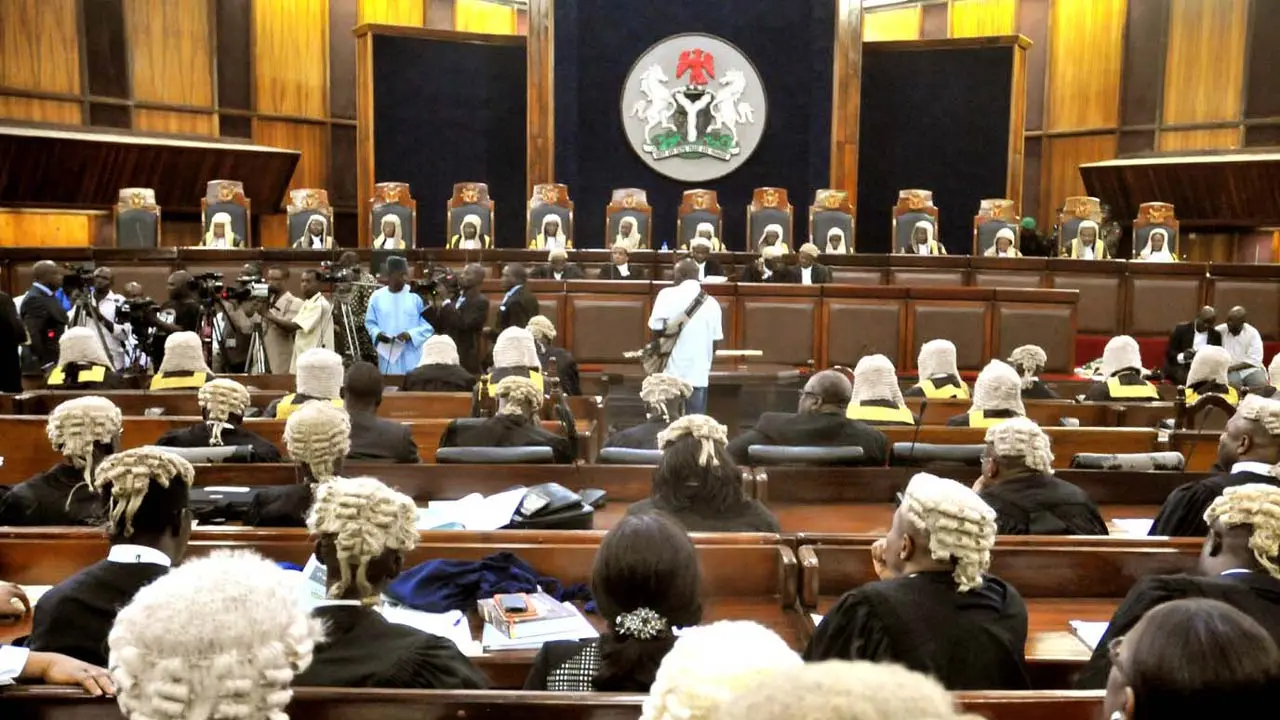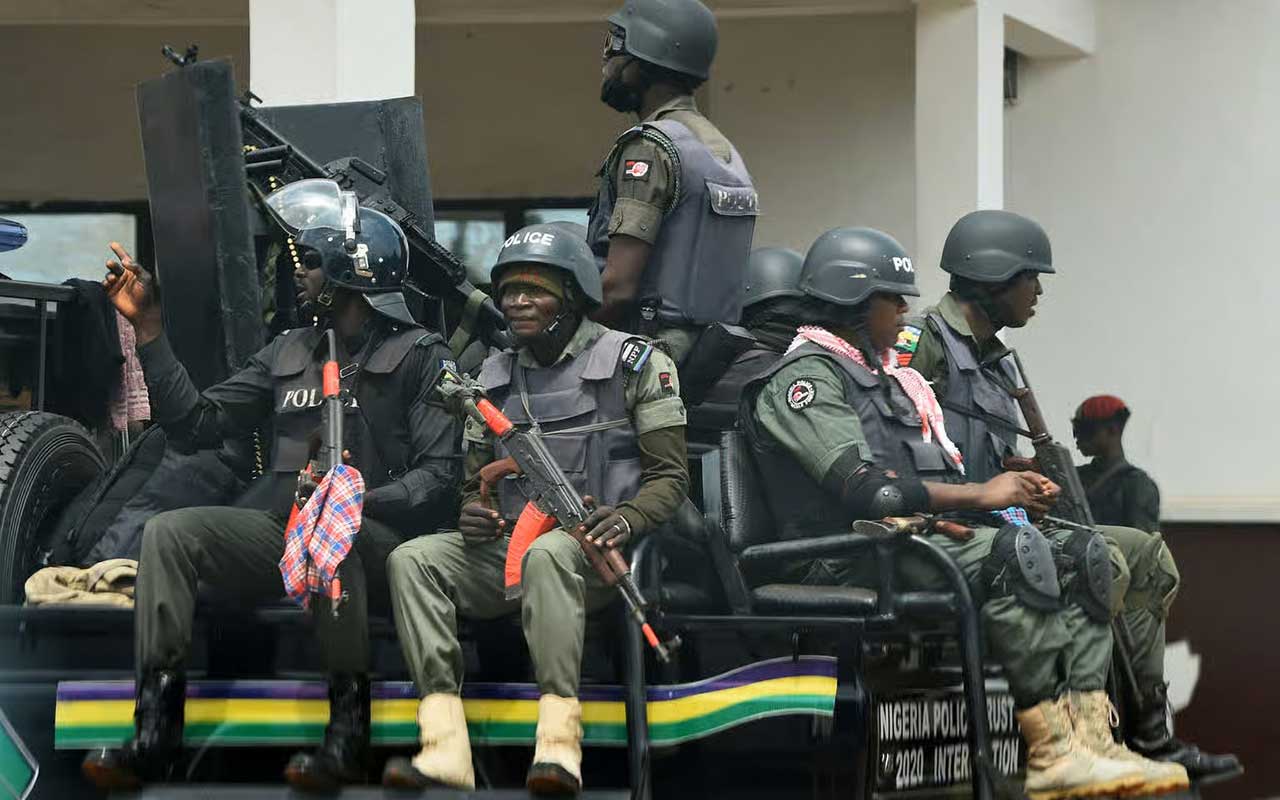Certainly, this is not the best of times for Nigeria. Every socio-economic index is a pointer that Nigeria is at its lowest level. Both the governments at all levels and citizens across religious, ethnic and even political divides are unanimous that Nigeria deserves better than its present status.
Unarguably, the primary responsibility of governments is the welfare and safety of the citizenry. But a government or a nation is what the citizens make of it. In other words, Nigeria’s problem has since shifted from leadership deficit to followership failure, otherwise, how can a government deliver on its mandate when the people deliberately alienate themselves from the scheme of things?
No one seemingly recognises their fundamental rights and privileges and obligations to fellow citizens, the immediate community and then the country. However, in most cases where they pay attention to their rights, they ignore their responsibility to others. It is this absence of civic responsibility that has continued to undermine Nigeria’s efforts at attaining a just, virile and prosperous economy and democracy.
But, what is civic responsibility? It is simply “a socially good behaviour to perform” towards a nation’s ordered social and economic development. It is a veritable tool in the hands of the citizenry to actualise the country of their dream. And whereas civic duty is mandatory civic responsibility is only morally compelling yet easy to perform. Sequel to weak institutions, civic duties can be evaded without consequences but the repercussions of citizens’ failure to discharge their civic responsibilities are enormous.
Succinctly put, civic responsibility, closely related to philanthropy, is all about freely giving back to society. It is about love for the country and fellow citizens. It is about selfless service to humanity. It entails doing what will inspire the government or leadership to deliver optimally on its mandate, to the advantage of the people and society. It is about patriotism and national interest. It is a global best practice.
To further underscore the importance of citizens’ civic responsibility, the Senate at its consideration of a motion on the recent killing of Nigerian Army personnel in Okuama Community, Delta State, among others, urged “the federal government to embark on enlightenment campaign to sensitise the public on their civic responsibilities as it affects their relationship with security agencies”.
Also, in yet another motion on the challenges of out-of-school children in Nigeria, the Senate called on the critical stakeholders to trigger “the national consciousness through sensitisation and advocacy on the importance of education to the growth and development of our country and the benefits of having majority educated population.”
Empirically, in the same manner that the legislature connects the people to governance, civic responsibility connects the citizens to the government. It facilitates popular participation in the scheme of things as it empowers the citizens to demand accountability from governments and also challenge underperformance or anti-people policies at all levels and tiers of governance.
For instance, when people do not participate in choosing their leaders or express interest in guiding governments to performance, how then do they expect democratic dividends such as a stable economy and enhanced security?
Again, how do the masses expect national development when they downplay patriotism and nationalism or especially, withhold their due respect to fellow citizens and constituted authorities?
Furthermore, why will the government not be negligent to the masses or corruption, incompetence and high magnitude of wastage in governance not fester when the citizens are defined by apathy and hostility towards the government?
Worse still, family values are today in very short supply sequel to the failure of parents to be models to their children just as most religious leaders have unfortunately deviated from moral grooming of the faithful.
Quoting from a publication titled Farewell to Democracy in Nigeria, “we brazenly ridicule our symbol of democracy and the conscience of the nation merely for political expediency. We allow our emotions to overwhelm us in our criticisms. We forget that the disparaging remarks are not just about the legislators. It is about their families and constituencies. It is about the offices they occupy. It is about the totality of these Nigerians who have sacrificed their privacies and liberties to serve us. It is about the legislature as an institution and bastion of democracy. It is about the sustainability of democracy. It is about our future and posterity.”
Continuing, “what we say or write about the legislature is a reflection of what the world thinks about Nigeria as a country. Foreign investment opportunities are threatened. The zeal to serve and passion for patriotism in public office decline with attendant increases in poverty and corruption. If only we could ponder the harm done to the image and reputation of Nigeria, how our flags and passports are viewed and how our nationals studying abroad feel among their peers, in the face of what exists on the internet about our legislature.”
Ironically and in the face of the foregoing, how does Nigeria become influential to regain its place among the comity of nations? How will the world respect Nigeria’s voice when her citizens are mostly the willing tools of her detractors? There is a high number of ‘enemies within’. There are fifth columnists who are resolute in their conspiracy to derail and underminr the country.
As an instance, at a time when President Bola Tinubu is making frantic efforts at attracting external investors and the recent parliamentary outburst by the President of the Nigerian Senate, Godswill Akpabio, in Switzerland, is still reverberating the world over, some compatriots are dutifully, albeit ignobly, engaged in negative narratives about the country, particularly on the social media. Perhaps for political expediency, they are wilfully de-marketing Nigeria which no doubt suggests that they are yet to come to terms that politics has since been over and given way to governance. Sadly, this is Nigeria’s greatest challenge of the moment.
Nonetheless, there is still a ray of hope.
It is quite reassuring to see a Nigerian who in a rare display of courage and patriotism has taken up the gauntlet for a place among the league of a few others who are persuaded that a new Nigeria is possible.
Unlike the already prominent Chief Executive Officer of Air Peace, Allen Onyema, who deployed aircraft to evacuate Nigerians who were stranded and endangered during the xenophobic attack against them in South Africa in 2019, a relatively unknown Citizen Tersoo David Ukechir, the Chief Executive Officer of Tetwood Ltd, has continued to demonstrate that unconditional love for the country is strategic to national growth and development.
As his modest contribution aimed at jumpstarting an innovative consciousness drive, he has been traversing the length and breadth of the country evangelising patriotism and nationalism. This he passionately executes by deploying a billboard messaging strategy across the country.
Some of the messages of his advocacy include: This Is The Only Country You Have. Do Not Condemn It. Do Not Curse Nigeria. Together, Let Us Make Nigeria Work Again!! Support President Tinubu.
Like the biblical “lone voice in the wilderness”, Umechir is actively complementing, if not challenging, the concerned organs of government in galvanising positive consciousness among Nigerians towards prosperity.
The thrust of his sermon is that Nigerians should embrace attitudinal change and value reorientation, always resist the temptation to wish the country evil as well as shun every act of sabotage. Also, he admonishes Nigerians to dispassionately believe in the capability of the government of the day to get it right this time with the citizens’ support snd cooperation.Ideally, there is no better way to discharge civic responsibility at a time like this!
However, it is worth emphasising that ‘support’ in this context is not absolute. It is a two-way action. When you demonstrate support to the government for doing good, you are invariably saying that underperformance of any kind is unacceptable. In other words, governments are to be commended and criticized when necessary. This must be noted for fairness and objectivity!
Then instructively, there is a significant take away from this task signed up by Citizen Umechir. It is selfless and devoid of partisan considerations because the elections are since over. It is purely altruistic, borne out of love for the country and also not affiliated to a particular section of the country or individuals. Yes, it is broad-based and self-funded, understandably as a corporate social responsibility programme.
But because a palm cannot make a clap, there is certainly a limit to the overall productivity. As such, Citizen Umechir deserves to be complemented by others and then be encouraged by the government to sustain this patriotic campaign. The media, clergy, professional bodies and civil society organisations are hereby invited to offer him the necessary platforms for success. There is a need for concerted efforts to massively amplify and internalize the advocacy messages. This is imperative if indeed we desire a better Nigeria. Similarly, it is an open challenge to the government of the day if truly it is committed to providing leadership towards a Nigeria that works for all.
But in the interim, may we always be inspired to “ask what you can do for your country” being conscious that a country and its government are what the citizens make of them. For it is only in this that “the labours of our heroes past shall never be in vain”!
Egbo is a parliamentary affairs analyst.






